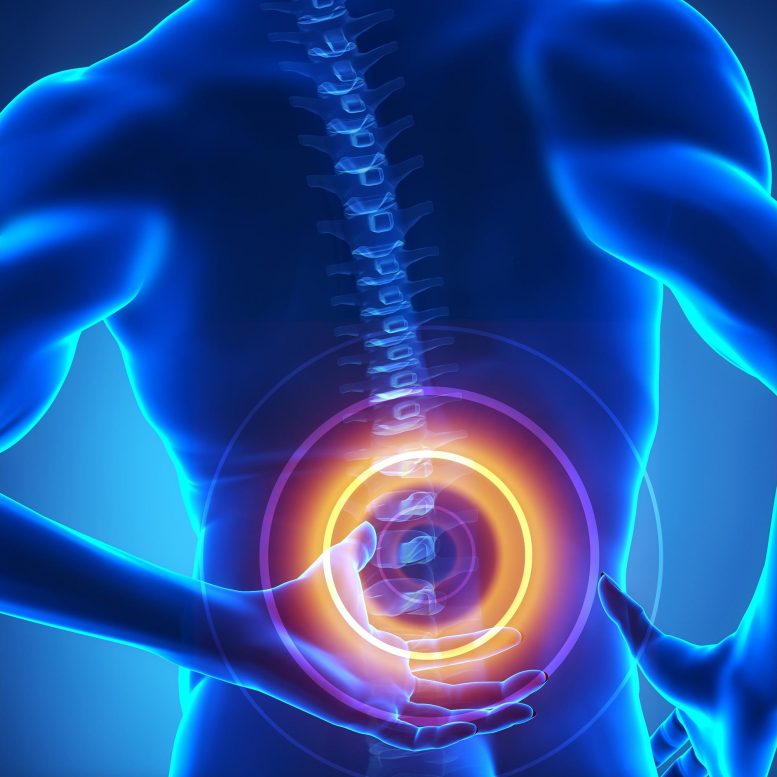
Patients receiving spinal anesthesia reported slightly worse pain levels, scoring an average of 7.9 out of 10 versus 7.6 for those under general anesthesia.
A study finds that hip fracture patients who undergo spinal anesthesia need more painkillers
Spinal anesthesia has replaced general anesthesia in several surgeries as a way to increase patient comfort and reduce the need for painkillers. However, research among hip fracture patients suggests that this modification may be having the opposite of the desired impact. The study was recently published in the journal Annals of Internal Medicine and was conducted by researchers from the Perelman School of Medicine at the University of Pennsylvania.
“In our study, patients who got spinal anesthesia did get fewer opioids in the operating room, but they ended up having more pain, and more prescription pain medication use after surgery,” said lead author Mark Neuman, MD, an associate professor of Anesthesiology and past chair of the Penn Medicine Opioid Task Force. “While our study can’t determine conclusively whether this was due to the spinal anesthesia itself or the fact that fewer opioids were given upfront, this is a result that should make people examine some of the assumptions informing current care pathways.”
Neuman and his colleagues wanted to verify the validity of presumptions about spinal anesthesia and reduced pain. In order to achieve this, scientists looked at data from 1,600 patients who had hip fracture surgery between 2016 and 2021 at dozens of hospitals around the US and Canada. About half of the participants in the study, known as the REGAIN Trial, had spinal anesthesia while the other half underwent general anesthetic for their procedure. On a scale of 1 to 10, each patient was asked to rate their level of pain at several points throughout the treatment. They were also asked to report if they had used any prescription painkillers following the procedure.
Overall, patients reported the greatest pain the day after their treatment, with spinal anesthesia patients rating it at an average of 7.9 out of 10 compared to 7.6 for those who had had general anesthesia.
Two months after their treatment, individuals under spinal anesthesia were 33 percent more likely than those under general anesthesia to still be using prescription medications. There was no significant difference in prescription pain medication usage six and twelve months after surgery, but Neuman was still concerned about what he found.
“Even though the 180- and 365-day findings are not statistically significant, the 60-day finding is still concerning, since there could be medication-related harms like respiratory depression or over-sedation that could still occur over the short term,” Neuman said.
The study follows research from Neuman in 2021 that showed general anesthesia was just as safe for patients who’d suffered a broken hip as spinal anesthesia. Again, that study’s findings went against a relatively widely held assumption in the medical community.
Neuman and his colleagues hope to improve pain care for patients with hip fracture and dementia by finding ways to increase the use of peripheral nerve blocks – a form of a local anesthetic injection that remains under-used despite recommendations encouraging their use for all hip fracture patients. Additionally, they want to apply the same lens they used in the REGAIN trial – comparing general to spinal anesthetic – to total joint replacements, such as hip replacements.
The study was funded by the Patient-Centered Outcomes Research Institute (1406-18876).
Reference: “Pain, Analgesic Use, and Patient Satisfaction With Spinal Versus General Anesthesia for Hip Fracture Surgery” by Mark D. Neuman, MD, MSc; Rui Feng, Ph.D.; Susan S. Ellenberg, Ph.D.; Frederick Sieber, MD; Daniel I. Sessler, MD; Jay Magaziner, Ph.D., MSHyg; Nabil Elkassabany, MD; Eric S. Schwenk, MD; Derek Dillane, MD; Edward R. Marcantonio, MD, MSc; Diane Menio, MS; Sabry Ayad, MD; Manal Hassan, MD; Trevor Stone, MD; Steven Papp, MD; Derek Donegan, MD; Mitchell Marshall, MD; J. Douglas Jaffe, DO; Charles Luke, MD; Balram Sharma, MD; Syed Azim, MD; Robert Hymes, MD; Ki-Jinn Chin, MD; Richard Sheppard, MD; Barry Perlman, Ph.D., MD; Joshua Sappenfield, MD; Ellen Hauck, DO, Ph.D.; Mark A. Hoeft, MD; Ann Tierney, MS; Lakisha J. Gaskins, MHS; Annamarie D. Horan, MPA, Ph.D.; Trina Brown, James Dattilo, BS and Jeffrey L. Carson, MD, 14 June 2022, Annals of Internal Medicine.
DOI: 10.7326/M22-0320









Are you seriously quoting “research” that shows “scoring an average of 7.9 out of 10 versus 7.6 for those under general anesthesia.” and allowing it to go unlaughed at? These are self-reported observations for pity sake. So a .3 difference between 7.6 and 7.9 is now somehow significant?
I think the researchers found the 60-day finding the most concerning – which showed a 33% increase in painkiller use which is quite significant.